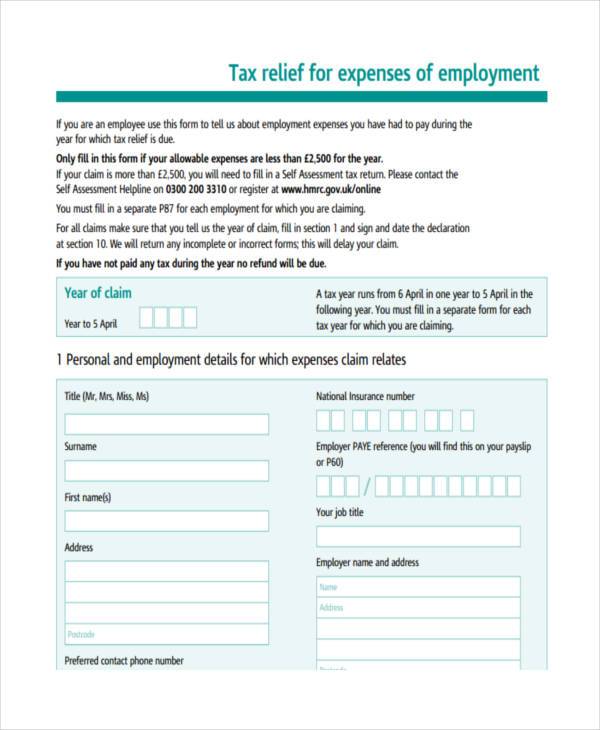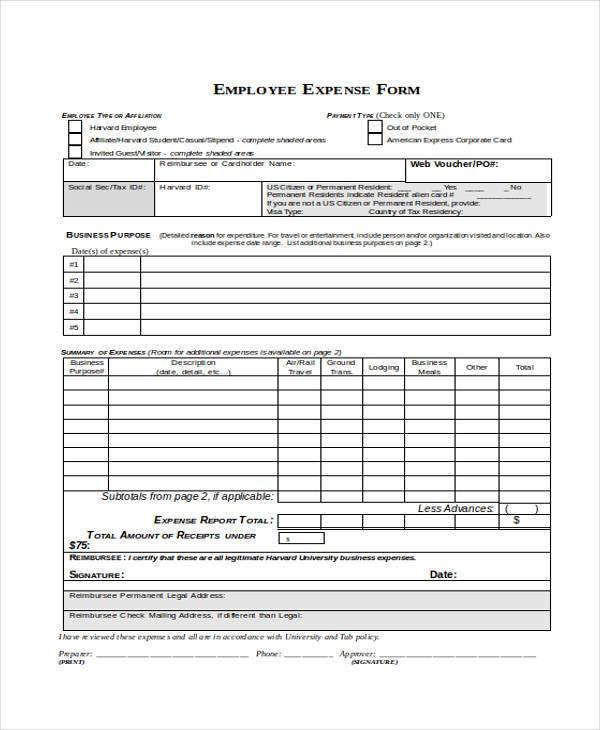Employment expenses play a crucial role in shaping the financial dynamics of both employers and employees. Whether you're a business owner or an individual navigating the complexities of your job, understanding these expenses is essential for optimizing your financial health. This guide dives deep into the world of employment expenses, offering actionable insights and expert advice to help you make the most of them.
Managing employment expenses effectively can lead to significant savings and improved efficiency. From tax deductions to budgeting strategies, this article aims to provide you with a clear understanding of how these expenses work and how you can leverage them to your advantage.
By the end of this guide, you'll have a comprehensive overview of employment expenses, including their types, benefits, and strategies for managing them efficiently. Let's get started!
Read also:Suzanne Kay A Comprehensive Guide To Her Life Career And Achievements
Table of Contents
- What Are Employment Expenses?
- Types of Employment Expenses
- Biographical Overview of Employment Expenses
- Deductible Employment Expenses
- Non-Deductible Employment Expenses
- Tax Implications of Employment Expenses
- Strategies for Managing Employment Expenses
- Employer Perspective on Employment Expenses
- Employee Perspective on Employment Expenses
- Conclusion
What Are Employment Expenses?
Employment expenses refer to the costs incurred by employees while performing their job duties. These expenses can vary depending on the nature of the job, the industry, and the specific tasks required. Understanding what qualifies as an employment expense is critical for both employees and employers.
For employees, knowing which expenses are deductible can lead to significant tax savings. For employers, managing these expenses efficiently can enhance overall business profitability. Common examples of employment expenses include travel costs, work-related tools, and professional development courses.
In today's evolving work environment, employment expenses have become increasingly complex. Remote work, for instance, has introduced new categories of expenses that were not previously considered. This guide will explore these nuances in detail.
Types of Employment Expenses
Travel Expenses
Travel expenses are among the most common types of employment expenses. These include costs associated with commuting, business trips, and attending conferences or seminars. To qualify for tax deductions, these expenses must be directly related to work duties.
- Transportation costs (e.g., airfare, train tickets)
- Accommodation expenses
- Meal allowances
Home Office Expenses
With the rise of remote work, home office expenses have gained prominence. Employees working from home can claim deductions for costs such as internet bills, utility expenses, and office equipment.
- Internet and phone bills
- Furniture and office supplies
- Utilities (e.g., electricity, heating)
Professional Development Costs
Investing in professional development is crucial for career growth. Expenses related to courses, certifications, and workshops can often be claimed as employment expenses, provided they are relevant to the employee's current role.
Read also:Hdhub4u Bollywood Movie Your Ultimate Destination For Highquality Entertainment
- Course fees
- Books and learning materials
- Membership fees for professional organizations
Biographical Overview of Employment Expenses
Employment expenses have a long history rooted in the evolution of labor laws and taxation policies. Below is a summary of key aspects related to employment expenses:
| Category | Description |
|---|---|
| Historical Context | Employment expenses emerged as a formal category in the mid-20th century, coinciding with the rise of modern labor laws. |
| Regulatory Framework | Regulations governing employment expenses vary by country but generally align with international tax standards. |
| Modern Trends | Recent trends include the inclusion of remote work-related expenses and digital tools in the list of deductible items. |
Deductible Employment Expenses
Not all employment expenses are created equal. To claim deductions, expenses must meet specific criteria set by tax authorities. These criteria typically include:
- Direct relevance to job duties
- Necessity for performing the job
- Proper documentation and receipts
Examples of deductible employment expenses include:
- Uniforms required for work
- Professional liability insurance
- Subscriptions to industry-specific publications
It's essential to consult a tax professional to ensure compliance with local regulations and maximize deductions.
Non-Deductible Employment Expenses
While many employment expenses are deductible, some are not eligible for tax relief. These include personal expenses that are not directly related to work duties. Examples of non-deductible expenses are:
- Commuting costs between home and office
- Meals and entertainment unrelated to business
- General clothing not required for work
Understanding the distinction between deductible and non-deductible expenses is crucial for accurate tax reporting.
Tax Implications of Employment Expenses
Employment expenses have significant tax implications for both employees and employers. For employees, claiming deductions can reduce taxable income, leading to lower tax liabilities. Employers, on the other hand, may benefit from tax credits or incentives for providing certain employee benefits.
According to data from the IRS, employees who itemize deductions can save an average of $1,200 annually by claiming employment-related expenses. This underscores the importance of thorough record-keeping and accurate reporting.
For employers, offering reimbursement programs for employment expenses can enhance employee satisfaction and retention. Studies show that companies with robust expense management policies experience a 15% increase in employee productivity.
Strategies for Managing Employment Expenses
Implementing Expense Tracking Software
Using expense tracking software can streamline the process of managing employment expenses. These tools allow employees to log expenses in real-time, upload receipts, and generate reports for tax purposes.
Setting Clear Policies
Employers should establish clear policies regarding eligible expenses and reimbursement procedures. This ensures consistency and fairness across the organization. Transparent policies also reduce the likelihood of disputes or misunderstandings.
Encouraging Financial Literacy
Both employees and employers can benefit from enhancing financial literacy. Training programs focused on expense management and tax planning can empower individuals to make informed decisions about their employment expenses.
Employer Perspective on Employment Expenses
From an employer's standpoint, managing employment expenses involves balancing cost control with employee satisfaction. Offering competitive reimbursement programs can attract top talent and improve morale. However, it's equally important to monitor expenses to prevent abuse or misuse.
Best practices for employers include:
- Regular audits of expense claims
- Setting caps on certain expense categories
- Providing clear guidelines for eligible expenses
Employers can also leverage technology to automate expense management processes, reducing administrative burdens and improving accuracy.
Employee Perspective on Employment Expenses
For employees, employment expenses represent both a financial burden and an opportunity for tax relief. Maximizing deductions requires meticulous record-keeping and a thorough understanding of eligible expenses.
Tips for employees include:
- Keeping detailed logs of all work-related expenses
- Obtaining receipts for every purchase
- Consulting a tax advisor for complex cases
By staying organized and informed, employees can ensure they receive the full benefits of their employment expenses.
Conclusion
In conclusion, employment expenses are a critical component of the modern workplace. Whether you're an employer or an employee, understanding how to manage these expenses effectively can lead to financial savings and improved productivity. This guide has explored various aspects of employment expenses, including their types, tax implications, and strategies for optimization.
We encourage you to take action by reviewing your current expense management practices and making necessary adjustments. Don't forget to share this article with colleagues or friends who might find it useful. For more insights on financial management and workplace strategies, explore our other articles on the website.


